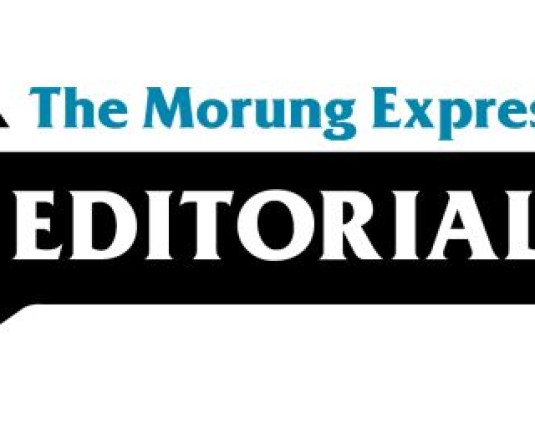
Pangernungba Kechu
Most Indigenous communities in the world today grapple with the opportunities and challenges presented by rapid monetization (for the Naga indigenous peoples this came via the British Raj and Government of India) of their once money-less barter economy. While some indigenous communities have been totally subsumed by or forced to adapt some forms of the modern capitalist economy, many indigenous groups have gone extinct. Unfortunately, a bigger tribal population today remains utterly devastated all around the world.
The case of Nagas within the State of Nagaland presents an ambiguous relationship with money. Since the inception of the State, Nagaland has been a “central-transfer-income economy.” On one hand, money (by means of salary, development, etc.) is being used as a tool by the Naga people as a form of self-pacification, political entitlement, and for exercising their economic agency in some limited ways. On the other, the unregulated money channelled through the State has created dependency, gross materialism, easy life-style, unhealthy divisions and conflict over sharing of economic resources.
Elections, especially State General Elections, bring out the deadly element of an unregulated monetized Naga society as money often stands synonymous with electioneering politics in the State. Indeed, money functions as the absolute object and symbol that captures both tribal (traditional) and modern notions of truth, power and leadership which become prominent and are rehearsed so passionately during elections. As we know, most aspects of electioneering in the State, is filtered through the lens of money-power. Clearly, the circulation of money in every nook and corner of the State likens to that of a sedative drug used for pacifying the public every five years. This “political drug” or election “money drug” is circulated “every five years” only to serve as an anesthesia for another five years. Categorically stated, the flooding of money drug is intentional and insidious. After keeping the public and employees cash starved (non-payment of salaries or for services) and spending most of the five years blaming each other and switching from one political party to another, money is deliberately showered like a monsoon rain during elections. Is it not natural for any politically victimized persons and poverty-stricken families to receive this as “manna” during elections? Many voters are too carried away by the allurement of the money drug (feasting, substance, cash, and cars, empty promises) only to realize after the elections that all they have left is to wait as an enslaved voter/public for the next money drug during in the next elections.
Further, elections in the State have been reduced to a mere mathematical game or problem: how much money should one invest during elections and how to skilfully play the arithmetic of recovering the election expenditure after winning. Instead of banking on a vision that can inspire people and the arithmetic of the power of voters, the best security and tool for winning elections is the possession of money power. And so, depending on their social biography and political character, the “worth” of each category of the voters (village, clan, influential families, and individuals) are weighed and calculated. Every quantifiable category of people in a constituency become economic units and each of these units are tasked to take on a monetized socio-political transaction. Even intending candidates who do wish to employ the money drug are pushed to practicing this arithmetical elections. The bitter truth is: elections are fought with money and for money.
Given the fact that most voters in the State are Christians, election malpractices should be viewed as a serious spiritual question. To be sure, the reality of money drug and arithmetical elections is the symptom of deeper moral crises. It is the reflection of a tribal community and a Church that is struggling to strengthen their spiritual foundations. Therefore, the election malpractices which we see unfolding in the State demonstrates that many Naga Christians love money over Christ, and their clan-tribe above Christ the Saviour. The NBCC Clean Election Movement, despite all its strengths and limitations, serves as a ray of hope for the Naga Christians. Truth be told that this money-drug kills. It is killing the democratic culture that we Nagas as a young people are picking up to practice and shelving away the aspirations and shared future of the citizens in Nagaland. Just one day away from the 14th NLA elections, honest citizens who aspire for a better Naga future will continue to resist the money drug that will never build a dignified Naga future but only prolong the death of a people and society through the subtle administering of a moneyed anesthesia. We abhor an arithmetical electioneering practice that has reduced democracy into a mere game of money and commodification people and values. Voters in the State desire solution to their economic and political suffering and not the arithmetical strategy (amassing of wealth and power) of the winning candidates. And beyond, we are plotting for a revolutionary praxis where 2028 General Elections will witness the triumph of “truth drug over money drug” and “principled elections over arithmetical elections.”
This is a guest editorial by Pangernungba Kechu.
The writer teaches at Oriental Theological Seminary, Bade, Dimapur.
He can be reached at panger.kechu@otsnagaland.edu.in






